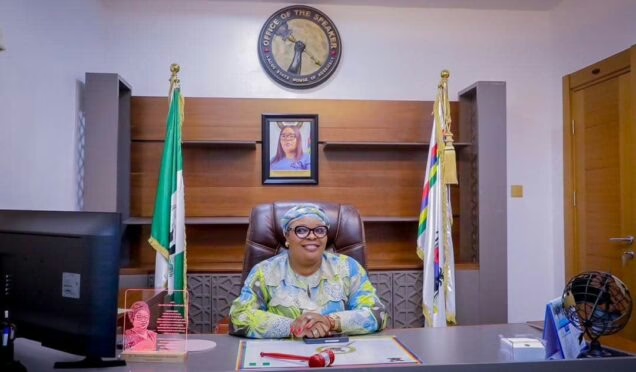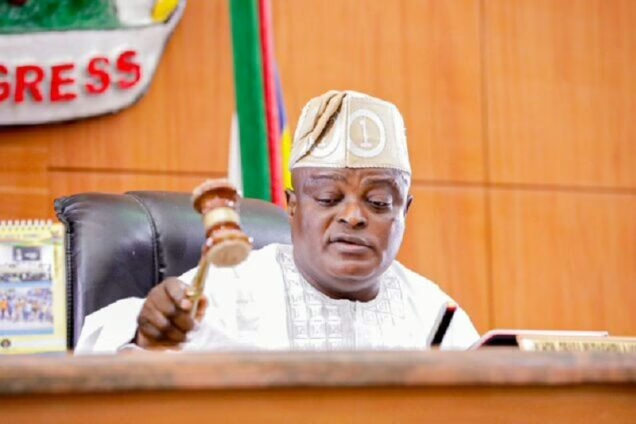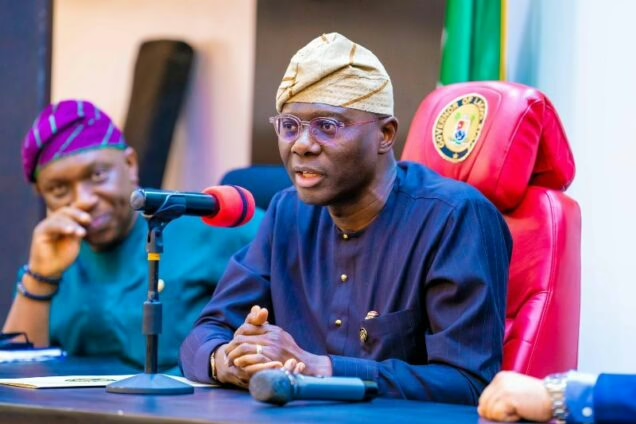A boy was born at Oyo town to the family of late Pa. Reverend Samuel Ayodele Banjo and Mama Comfort Jokotola Banjo (nee Osinuga) of the Arobieke family of Oke-Jaga, Ijebu-Igbo, in present day Ogun State of Nigeria on Wednesday, May 2, 1934. He was destined to be great.
The then little bundle of joy has grown to be known as Professor Emeritus Ayo Banjo, CON, NNOM, FNAL, quondam Vice-Chancellor of the University of Ibadan. He turned 90 years old yesterday. It is time to celebrate an academic luminary, an icon, an eminent citizen of the world and a father figure to many. His illustrious career in adult has been the rise and rise of Ayo Banjo. Anything he does not know about university administration in Nigeria is probably not worth knowing.
I was recruited as a Temporary Lecturer in the Department of Geology, University of Ibadan during his first tenure as the sixth Vice-Chancellor of the University following the recommendation of two successive Heads of the Department of Geology, namely Dr. Olusegun Kokumo Agagu (now of blessed memory) and Prof Thompson Adeyemi Badejoko, respectively, and the Dean of Science, Professor Gabriel B. Ogunmola.
Those were the days in which university autonomy enabled leaders of our universities the leverage to recruit outstanding scholars with exceptional potentials for a successful academic career as temporary lecturers before interviews were subsequently conducted to regularise their appointment. This autonomy has been unfortunately eroded in recent years, no thanks to the nebulous Integrated Payroll and Personnel Information System (IPPIS).
My formal contact with Professor Banjo did not start until my stint as the Dean of the Postgraduate School some 15 years later. At a reception held within the grounds of the Vice-Chancellor’s Lodge (now renamed after its longest resident as Ayo Banjo Manor), the then Dean of the Faculty of the Social Sciences, my senior colleague, Prof Adedoyin Soyibo, asked that we should go and greet Prof. So it was that I followed him. I was pleasantly surprised that Prof Banjo knew little me as he greeted me so warmly referring to me affectionately as the Dean of the Postgraduate School.
For the records and full disclosure, he was one of my three referees when I applied for the post of Vice-Chancellor of the University of Ibadan in 2015. I was not unaware that he had equally performed the same duty for at least three former Vice-Chancellors of the same institution. I remain eternally grateful for agreeing to perform the task for me.
I continue to tap from his wealth of experience as an elder statesman, former Vice-Chancellor and former Pro-Chancellor and Chairman of many universities. Needless to emphasise that I have benefited immensely from the father-son and mentor-mentee relationship I have with Professor Banjo over the last 22 years. One feels proud to be counted as one of his numerous proteges.
I regularly consulted him as someone who had institutional memory of the University of Ibadan and he never disappointed me. I found in him a very compassionate and considerate person. He once asked me why the University had not conferred Emeritus Professorship on an eminent scholar who in his opinion was well-deserving. We subsequently processed the application and it was strongly approved by the relevant Committee, Senate and Council.
He was very supportive of all our humble efforts during my five-year stint as VC, especially his numerous interventions during crisis periods. He attended all the five Convocation ceremonies held during my tenure except for the 2020 edition, no thanks to the COVID-19 pandemic. I am aware of his sadness in respect of the unsavoury developments associated with the appointment of the 13th VC of the University of Ibadan. Happily, the matter has since been resolved amicably, and put where it rightly belongs; behind us.
Prof Banjo has a very strong work ethics. About five years ago, the then Executive Secretary of the National Universities Commission (NUC), Prof Abubakar Adamu Rasheed, was in Ibadan and he needed to visit the Chairman of his Governing Board. And so it was that I had to follow him to the Ashi Bodija residence of Baba Banjo.
In the course of our visit, both Prof Rasheed and myself inquired how our host spends his typical day. He obliged our request and gave a narration. I did a mental sum of the total number of his working hours per day and this turns out to be as much as for those of us who are still in active service. This was nearly after 27 years after his voluntary retirement. Undoubtedly Prof Banjo is an inimitable exemplar to covet.
In one of our recent conversations, he confided in me and narrated how a particular senior Professor made life extremely difficult for him while he was in office as the Vice-Chancellor. I inquired why he did not include snippets of that experience and similarly tempestuous events in his memoirs so that others like my humble self who were directly in succession to him as the Vice-Chancellor could learn from how he successfully navigated the shark-infested, stormy waters and organised chaos typical of our universities.
He apparently felt that not much was to be gained from re-opening old wounds. He told me that the other party might never have had any opportunity to defend himself. I respected his opinion, although not without feeling that only a perfect gentleman in the mould of our highly respected academic father Professor Banjo would have acted in this manner to protect his traducers.
Professor Banjo has a very powerful gift of memory of past events. I recently asked him about the initial failed bid to mount a degree programme in Architecture at the University of Ibadan after some students and staff had been recruited. He was kind enough to narrate to me exactly what transpired before the National Universities Commission scrapped the course, the processing of which was apparently inchoate.
The lot fell on Professor Ayo Banjo, then the Acting Vice-Chancellor in 1984 to appear in court to defend his university. At the end of the day, the case was decided against the University of Ibadan. Happily, Architecture has now been approved by the NUC as a course of study at the University of Ibadan and the first set of students have since graduated at the end of the 2021/2022 academic session. A massive structure now serves as the permanent structure for the Department of Architecture, within the Faculty of Environmental Design and Management complex, at the Olajuwon Olayide Extension of the University.
Prof Banjo is easily the longest-serving Vice-Chancellor of the University of Ibadan, serving in that capacity for the maximum of two terms allowed then by law from December 1, 1984 till November 30, 1991. He was previously the Acting Vice-Chancellor from November 30, 1983 till November 30, 1984. He had at various times been Deputy Vice-Chancellor and Dean, Faculty of Arts. He has obviously paid his dues to the university where he had been a lecturer since 1966, a professor, since 1975 and a Professor Emeritus since 1997.
Our honoree is a distinguished administrator; former Chairman, Advisory Committee on the National Language Centre, former Chairman National Committee on English Language (WAEC); President, Nigerian Academy of Letters (2000-2004); former President West African Modern Language Association; former visiting Professor of English to the University of West Indies, Barbados; Visiting Fellow at the University of Cambridge, England (1993-1994). Chairman of the Advisory Board of the prestigious Nigerian Liquefied Natural Gas Prize for Literature. Former Pro-Chancellor, University of Port Harcourt (2000-2004); former Pro-Chancellor, University of Ilorin (2005-2007).
He is also a former Pro-Chancellor, Ajayi Crowther University, Oyo, and Quondam Chairman of the Governing Board, National Universities Commission. Here is someone who has seen it all in the sense that whatever he does not know about the Nigerian educational System based on his hands-on experience over at least the past 60 years is probably not worth knowing! He is a great ambassador of the Nigerian University System.
Barely six years ago, Professor Banjo spoke passionately as follows: “There is no way of running an acceptable – not to talk of a first-class- university with grossly inadequate funds. Vice-chancellors have repeated this all the time, but the authorities seemed to believe that there was a way of squaring the circle without adequate funding. One remedy that they decided upon was to open the system to private participation. But this has not quite solved the problem because, even as private universities were opening, the Federal Government continued to open more universities of its own.
“The result would appear to be, not private/public collaboration, but duplication, which has resulted in an alarming number of unemployed graduates. What remains apparent is an absence of clear planning. Instead of collaborating with the private sector to ensure that universities are evenly spread across the country, the Federal Government appears to be pursuing a policy of spreading universities across the country on its own. The financial crisis in the federal universities has thus remained hardly abated.’’
Moreover, he speaks at every available opportunity on governance of the universities, university autonomy, academic freedom, financial autonomy, student admissions; public and global perception and ranking of Nigerian universities, irregular academic calendar, the university committee system, and powers of University Councils, among many other related sub-themes.
The greatest tribute this country can perhaps pay to Professor Emeritus Ayo Banjo, in repositioning the Nigerian educational system, especially at the University level, is to implement his far-reaching recommendations which he has been making for the better part of the past six decades as a well-informed insider and a primus inter pares in the system.
Prof. Idowu Olayinka, FAS, 12th Vice-Chancellor, University of Ibadan.
Beyond all his accomplishments Baba Banjo is a very humane person. He lost two great individuals during the second half of last year, 2023, namely his childhood friend, Otunba Subomi Balogun, and his immediate younger sister, Mrs Olatokunbo Aduke Ogunbawo (nee Banjo). I visited him at home in both instances to condole with him. He was obviously devastated with their departure but he bore his pains stoically.
He told me that by Yoruba tradition he could not possibly attend the funeral of his younger sister. After her interment at the Archdeacon Banjo Memorial Anglican Church in the Challenge area of Ibadan which I attended, Baba was in a pensive mood. His morale was happily boosted with the arrival of his long-standing friend Baba, Professor Emeritus Ayo Bamgbose. We pray for the repose of Baba Subomi Balogun and Mama Ogunbawo.
The wisdom of the sage is built on their age. The reason we need them is the number of seasons they have seen. A nation without the aged is like a people in a cage. This is the Season of Ayo Banjo. Let us celebrate our father who art in New Bodija.
We join his family and numerous admirers to wish our own Baba Banjo many more years of service to humanity.
Prof. Idowu Olayinka, FAS, 12th Vice-Chancellor, University of Ibadan.











